Ethiopia elections: The misinformation circulating online
- Published
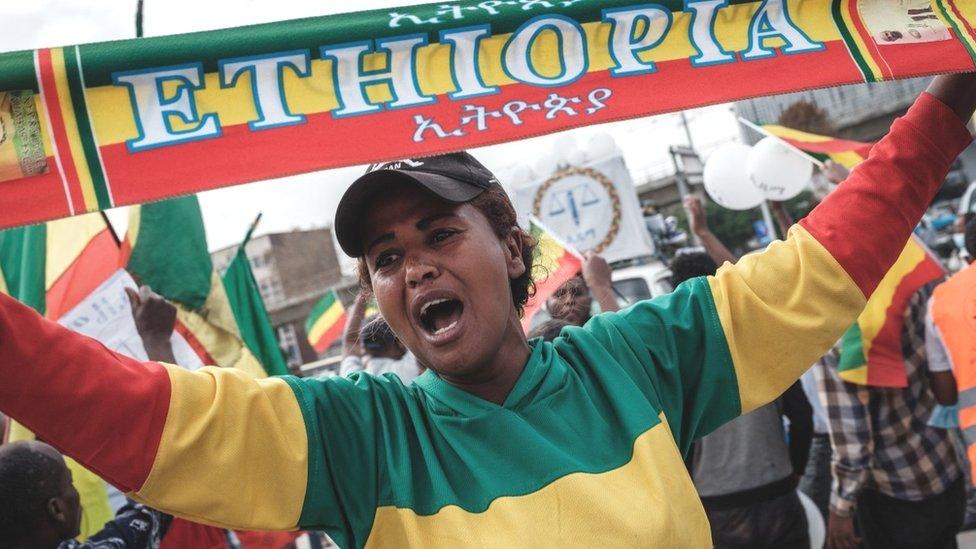
As Ethiopia prepares for parliamentary elections on Monday, some online users have been posting misleading content and claims.
Access to social media in Ethiopia is relatively low compared with elsewhere on the continent but its use is rising rapidly, external, particularly around events such as national elections.
Just days before the vote, Facebook shut down accounts which it said had been posting misinformation.
The PM did not say he would 'rather die' than hand over power
It's been one of the most widely shared pieces of fakery during the election campaign - an audio recording, apparently of Prime Minister Abiy Ahmed, allegedly leaked from a top-level meeting of the ruling party.
The prime minister can be heard saying he would "rather die" than leave office.
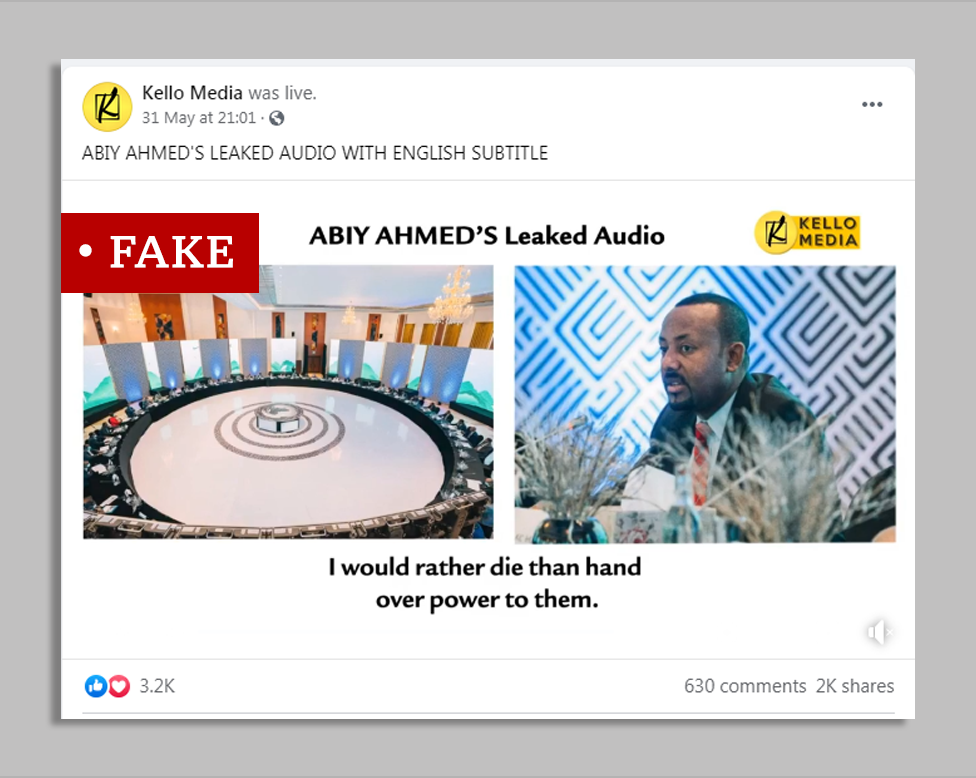
The recording was originally posted by Kello Media, an online news service based in the United States, claiming it was authentic.
Mr Abiy's office subsequently released a statement saying the audio was a fake and that it had been "put together by drawing on different unrelated remarks made by the prime minister".
The BBC's Amharic language service has analysed the audio and identified distinct jumps, as well as variations in volume and audio quality, strongly suggesting it had been manipulated.
Three separate sections of the audio were traced back to previous public recordings of Mr Abiy.
Ethiopia is not planning nuclear attack on Egypt
This is a rather more far-fetched claim but highlights the tensions between Ethiopia and its neighbours over a vast new dam built on the Blue Nile in Ethiopia.
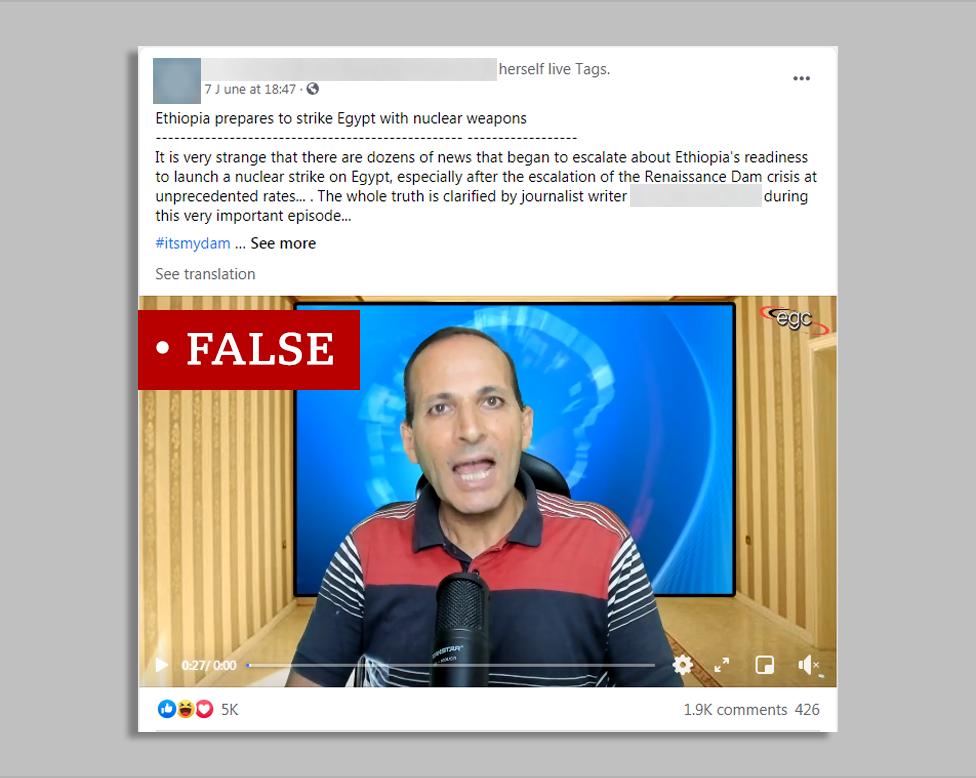
It's one of Abiy Ahmed's proudest achievements, but the filling of the Grand Ethiopian Renaissance Dam and its impact on water flow downstream has been highly controversial.
A Facebook page operating from Egypt has been posting unverified claims about the row, including one that Ethiopia plans a nuclear attack on Egypt.
"It is very strange that there are dozens of news [stories] that began to escalate about Ethiopia's readiness to launch a nuclear strike on Egypt, especially after the escalation of the Renaissance Dam crisis at unprecedented rates," the post says.
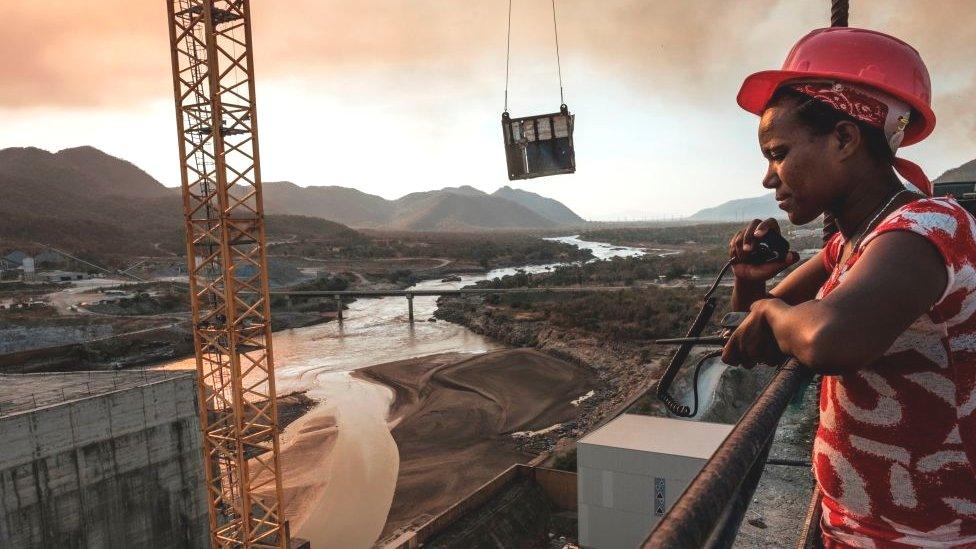
Ethiopia sees the dam as a vital source of hydro power, but Egypt sees it is as a threat to livelihoods downstream
But Ethiopia doesn't possess nuclear weapons. In fact, no African state currently has nuclear weapons.
Most of the countries in Africa are part of the UN Nuclear-Weapon-Free Zones, external whereby they have pledged not to have nuclear weapons and agreed to verification of their compliance.
Have voter registration numbers been inflated?
In a country made up of many regions competing for political influence, the number of voters registered in each area is a highly charged issue.
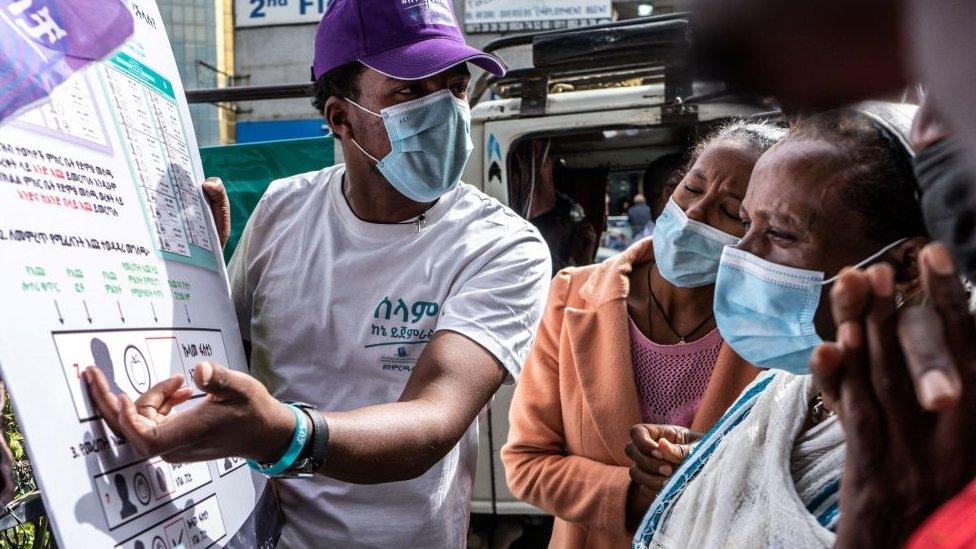
The accuracy of voter lists is a highly contentious issue
A series of posts have been shared questioning the official registration figures issued by the National Electoral Board of Ethiopia (NEBE).
While we can't confirm whether the figures given by NEBE reflect voter populations accurately (the last census was carried out in Ethiopia in 2007), the posts being shared provide no evidence to back up their claims of manipulation.
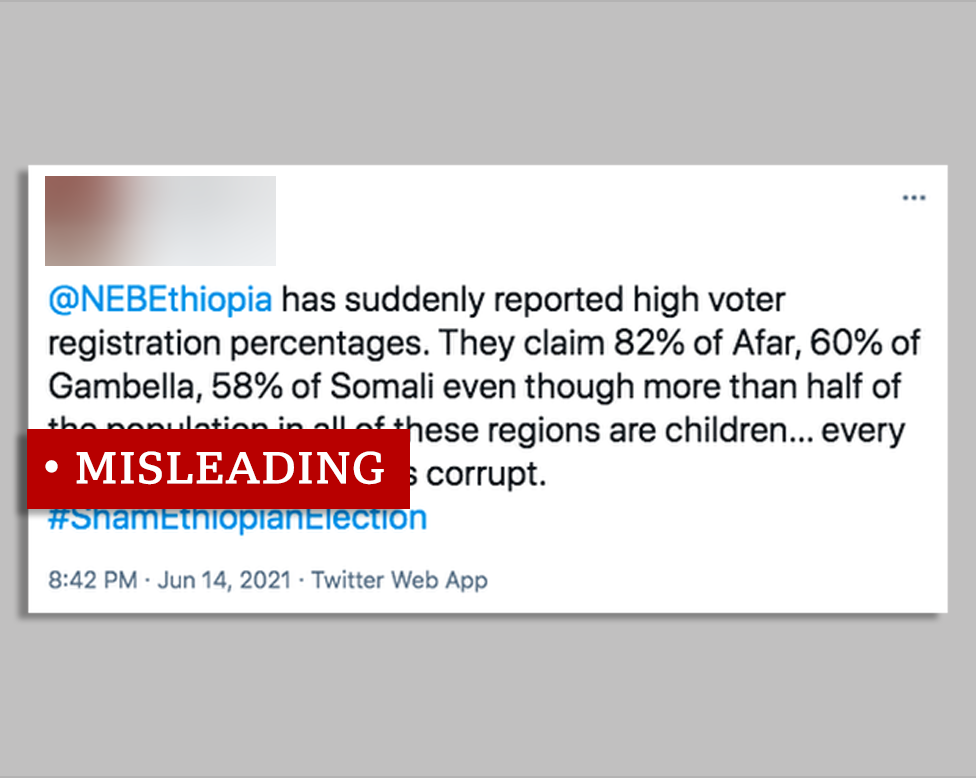
Frustrations are expressed in some posts that specific ethnic communities which might be expected to support the ruling party are being intentionally inflated.
One post from an opposition campaign based outside Ethiopia claims "every aspect of this election is corrupt", again without evidence.
The data this post refers to was a set of preliminary figures released in early May. They were subsequently revised downwards after the commission concluded that there had been registration irregularities in some areas.
But this hasn't stopped people from retweeting claims with the outdated figures.
A census was supposed to have been held in 2017 but has been postponed several times, firstly because of security concerns and more recently because of the Covid-19 pandemic.
Did the prime minister campaign in a UN vehicle?
The relationship between the United Nations and the Ethiopian government is a particularly sensitive one.
Some opposition groups have questioned the neutrality of the UN over the conflict in Tigray region and have accused the international body of failing to adequately acknowledge human rights abuses there.
In particular, opponents have highlighted an interview given by the UN resident co-ordinator in Ethiopia, Catherine Sozi, in which she referred to the conflict in Tigray as a "law enforcement operation".
So when a photograph was posted on social media of the prime minister apparently campaigning in a vehicle with blue UN registration plates, it was widely shared.
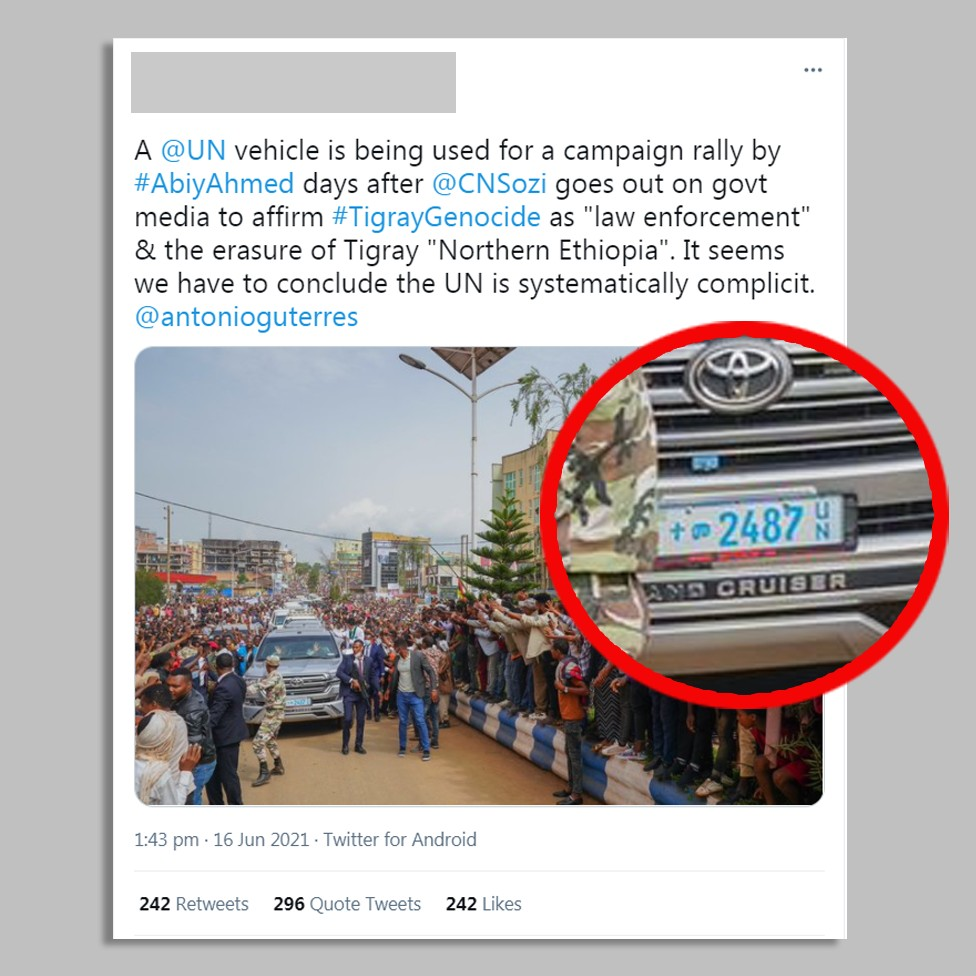
The image was taken during campaigning by Mr Abiy in the Oromia region. The blue UN plates also appear in a tweet from the prime minister's own account, external.
Although the images appear genuine, we don't know if the car was provided by the United Nations or why it was carrying UN plates.
Curiously, there is a photo posted by the prime minister's official photographer later that same day of the identical vehicle, but now with the registration plate removed, external.
A spokesperson for the UN told the BBC: "It is a common practice in Ethiopia that the UN donates cars to government ministers at federal and regional levels."
He went on to say that sometimes these vehicles keep UN number plates for tax reasons, even if they were no longer part of a UN programme.
"We're checking on what might have happened in this case."
We have written to the prime minister's office, but have not yet received a reply.
